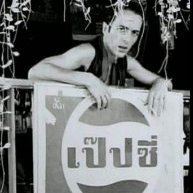NLA’s agriculture committee urges government to rein in uses of chemical fertilisers by farmers
-
Recently Browsing 0 members
- No registered users viewing this page.
-
Topics
-
-
Popular Contributors
-
-
Latest posts...
-
153
Trump Leaves G7 to Handle Middle East, Orders Evac
And I acknowledge and accept you confusion. Please know that when engaging with me you're in a safe space, buddy.👍 -
58
Video Brit Beauty Queen Bows Out of Dating Due to Intimidated British Men
Is it an accent or another language? Quite a few years ago, I got into a very spirited argument in Newcastle with a Georgie over who was first to the gas pump. It went on for 3 or 4 minutes until both of us simultaneously began laughing uncontrollably as neither of us could understand a word the other was screaming. -
22
USA Social Media Overtakes Traditional Outlets as America’s Primary News Source
As is abundantly clear by the number of bonkers posts and conspiracy fruitcake blather evident daily. -
20
Has anyone used Friendly Thai Visa’s airport safe entry service? Only real experiences plz
i agree. I would always avoid getting an ED visa if i would go into these problems -
29
Why do most people NOT smoke weed even though it's legal?
Apparently the THC in today's harvests of marijuana is multiple times higher than the ganja we smoked 30 years ago. I guess you could argue therefore that you need less to purchase and get high, anyway I'll pass. -
72
Thailand’s Losing Its Edge — Is Vietnam the Next Real Deal?
Sure Vietnam or any other place in Asia like Malaysia or the Philippines or even Japan where things are far cheaper then what we think. Foreigners are fed up with the almost institutionnalised cheating and overcharging all over. The total lack of respect from some of the locals and all the absurd immigration rules against foreigners who bring in money or who have invested in homes here. Vietnam the ladies are divine, prices around half of what is being overcharged in Thailand, great healtcare facilities, great food, people are still friendly with all foreigners....and their beaches are pristine, magical and far cleaner then most beaches in Thailand.
-
-
Popular in The Pub









.thumb.jpeg.d2d19a66404642fd9ff62d6262fd153e.jpeg)




.thumb.jpg.bc523c85a8d558dbc282dca7a2e602c9.jpg)
Recommended Posts
Create an account or sign in to comment
You need to be a member in order to leave a comment
Create an account
Sign up for a new account in our community. It's easy!
Register a new accountSign in
Already have an account? Sign in here.
Sign In Now